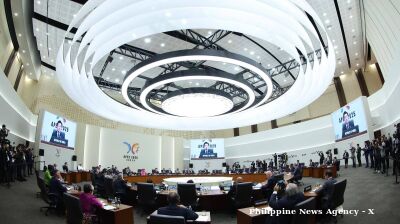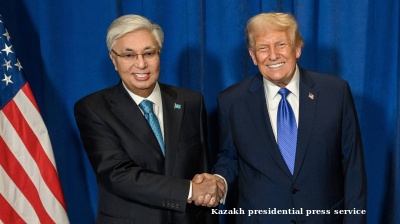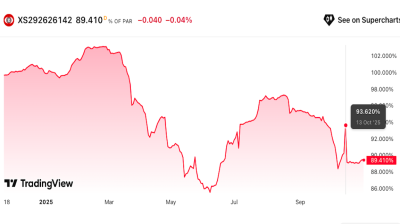The decision by Washington to block Iraq from importing gas from Turkmenistan via a swap deal with Iran may prove problematic for Baghdad, but it could reignite interest in building a trans-Caspian pipeline that enables Turkmen gas to flow to Europe.
Washington’s decision was part of an effort to ramp up sanctions pressure on Tehran and was not specifically intended to punish either Baghdad or Ashgabat, although both will be impacted.
Iraq is suffering from crippling power shortages, and importing gas from Turkmenistan via Iran for a few years offered a quick fix while Iraqi officials worked to tap into their country’s own under-exploited gas reserves. Much of those reserves are located in areas not fully under Baghdad’s control, and it may take a few years yet to bring them online.
The impact on Turkmenistan is not expected to be so severe.
The 5bn cubic metres (bcm) a year Baghdad was looking to import for the next few years is only a fraction of the estimated 34 bcm that Turkmenistan annually exports to China. But Washington’s decision is likely to raise questions in Ashgabat about the country’s export strategy.
A Turkmen gas deal with Turkey involving a swap arrangement with Iran also appears to be on hold. The deal – heralded as an important step in proving to western investors that Turkmenistan can be a trusted business partner – calls for Turkey initially to receive up to 1.3 bcm of gas from Turkmenistan this year, and potentially greater volumes in the coming years.
But Maksat Babayev, the CEO of Turkmengas, indicated in late October that the agreement has been paused for unspecified technical reasons. Turkmenistan has a record of being hard to pin down on gas pricing. In 2022, for example, Turkmenistan sent up to 2 bcm of gas to Azerbaijan via a one-year swap deal with Iran that looked set to be renewed and expanded until Baku and Ashgabat failed to agree on price.
But in the case of the Turkish deal, the swap structure involving Iran may be the sticking point.
Ashgabat may now have to rethink its focus on exports to regional neighbours by utilising Iran’s domestic gas transit infrastructure. Recent developments may encourage Ashgabat to pursue more actively investment in dedicated gas export routes targeting its biggest potential market, Europe.
The possible ramifications of the US block appear to have been understood by Ashgabat. Speaking at the 5th Tbilisi Silk Road Forum on October 22, Turkmen Foreign Minister Rashid Meredov confirmed that Ashgabat is committed to reviving the “Silk Road” concept of transiting gas from Central Asia to Europe.
“Turkmenistan has always emphasised the great importance of the Western direction, specifically the creation of a stable energy corridor along the Caspian Sea-South Caucasus-European route,” he said.
There are signs too that Azerbaijan, through which any Turkmen gas exports to Turkey and Europe would have to transit, is open to the idea.
Baku’s strategy has always been to prioritise the development and export of gas from its own reserves. However, efforts to boost gas output from its giant Shah Deniz gas field and Azeri-Chirag-Guneshli oil field have yet to bear fruit. Azerbaijani officials accordingly have confirmed they will be unable to double gas exports to Europe to 20 bcm per year as promised to the European Union. Additional volumes of Turkmen gas, then, could help Baku ultimately meet its delivery commitments.
If all sides are on board with a trans-Caspian pipeline, investors would be more likely to consider financing for construction, as well as necessary expansion of capacity of existing lines through Azerbaijan, Georgia and Turkey to Europe. Gas could also potentially transit via a pipeline built along the envisioned Armenian-Azerbaijani land corridor, dubbed the Trump Route for International Peace and Prosperity (TRIPP).
David O’Byrne is an Istanbul-based journalist who covers energy.
This article first appeared on Eurasianet here.
News

US–China soybean sales restart
According to Scott Bessent, US Treasury Secretary, the agreement marks a significant step towards restoring normalcy for American farmers.

Russia faces $50bn annual losses from oil sanctions as Lukoil exits international assets
Russia is expected to lose at least $50bn annually due to oil-related sanctions, as Moscow’s largest private oil producer Lukoil agrees to sell its international assets and Germany considers nationalising operations owned by state-run Rosneft.

Chicken and chips in Seoul - for Nvidia, Samsung and Hyundai
In a low-key fried chicken shop in southern Seoul, the leaders of Nvidia, Samsung Electronics and Hyundai Motor held an informal meeting on the evening of October 30.

Presidents Lee and Xi begin diplomatic chapter at APEC summit
President Lee, who is chairing the first session of the summit at the Hwabaek International Convention Centre, stood at the entrance to personally welcome participants. President Xi reached the venue at approximately 10:02.




